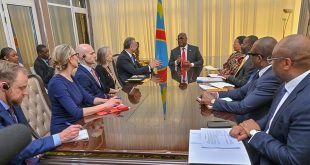
Parliamentary intervention in government contracts has been consistently counterproductive because MPs do not look at all sides
(…continued from last week)
I argued in this column last week that parliamentary intervention stopping the signing of oil contracts is likely to make a bad situation worse. First, experience shows that it is easy for anyone, leave alone oil companies, to buy off MPs. Therefore, their current posturing does not impress me. Second, even if some MPs are genuine in their interventions, most of them are poorly informed to guide the contracting process to a better outcome. This is largely because they have done little or no research to understand the intricacies of these contracts. And they have not even bothered to seek the services of technically competent people to help them.
The lesson that parliamentary interventions make bad contracts worse was brought to me vividly between 1998 and 2002 and beyond. That was when I was covering government tenders and contracts for The Monitor (now Daily Monitor). It became apparent to me that each successive parliament got increasing resources for research assistants/assistance, office space, computers etc. Yet input into the policy process has been consistently declining. This disproves the obsession of international donors who seem to believe that our primary problem is money; and that if you increase funding of parliament, you will get better outcomes in performance.
One of the most contested tenders that drove this lesson home was AES’s attempt to sign a $500m Power Purchasing Agreement (or PPA) to construct a 250MW hydro-power dam at Bujagali. I worked closely with MPs on the Committee on National Economy to improve the PPA with AES. We did a lot of research and reflected deeply on the issues. I became an ardent crusader of the cause to improve the quality of the PPA. We had very strong and legitimate points for our objections.
First, we argued the price per kilowatt hour of electricity of 6.9 US cents was too high given that average international cost was 3.9 cents; second, we felt the hydraulic clause where government of Uganda guaranteed a certain level of water-flow from Lake Victoria was preposterous; third, we pointed out that since the Norwegian company, NORPAK, was offering to build a 200MW dam at Karuma for $300m, it was unreasonable for Uganda to get an extra 50MW at Bujagali for an extra $200m; fourth, Bujagali was going to displace a large part of the population while Karuma, given its underground tunnelling, would not; fifth, that the Bujagali dam was going to destroy white water rafting which was a natural beauty but also a source of tourism revenue for the country then and most especially in the future.
One Saturday, I had a thrilling showdown on Capital Gang with the Managing Director of AES in Uganda, a young American called Christian Wright. I presented the arguments above with the passion of an activist, the eloquence of a preacher and the conviction of a fanatic. Wright found it difficult to make his arguments and walked out of the studio distraught. Now I know why I won the debate that easily. The issues Wright was raising were very complex and could not easily be explained through radio sound-bites. They also needed a more sophisticated audience knowledgeable about international financial risk management.
For example, Uganda is considered a very risky destination for investment. So lenders ask for higher interest on their loans, a factor that increases the cost of any project. The price of electricity is determined by the age of the dam (after 15 years electricity tariffs tend to go down by 30 percent since the investor would have completed his/her loan obligations). New dams also cost higher because of current construction costs. Finally, government has to guarantee a particular amount of water flow (for roads it would be traffic flow) short of which government would compensate the investor. These guarantees are necessary for big investments. They also exist in countries like UK in the management of trains.
If a vocal populist and an informed project analyst faced off on a radio show with our Kampala audience about today’s Bujagali dam, the populist would still carry the debate. For example, government retained the hydraulic clause. It also paid the initial $75m equity for the investor, Bujagali Electricity Limited (BEL) before financial closure (how could government pay equity of a private investor? the populist would shout). It has also guaranteed the investor a 19 percent rate of return on capital (how can government do that when all other investors take the risk to make profit or losses, the populist would add) etc. Explaining these clauses and placing them in the context of the investment risk we are perceived to have before an audience that wants to hear only that which pleases them is a Herculean task.
When I walked out of the studio, I found Wright outside. He pulled me by my shoulder and spoke to me with a passion and calmness that has haunted me for 13 years. “Andrew,” he said somewhat pensively, “I do not know what is motivating you to oppose this project. Possibly you are convinced it is bad for your country and many of your points are legitimate. However, this is a fair deal for Uganda and if you help kill it, you will keep this country in darkness for the next 10 years.” I remember vividly quoting this warning to my editor, Charles Onyango-Obbo (he did not appear at the show that day) and both of us laughing at Wright’s attempts “to blackmail me” with the threat of darkness for 10 years.
 The Independent Uganda: You get the Truth we Pay the Price
The Independent Uganda: You get the Truth we Pay the Price



